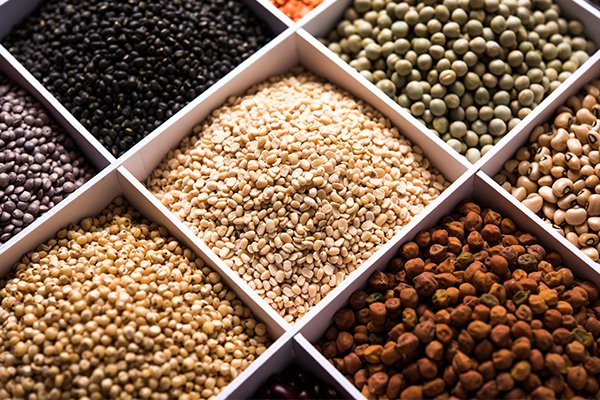India’s import of black matpe or urad beans from Brazil has reached 3,000 tonnes, with expectations of procuring an additional 20,000 tonnes this year, according to Union consumer affairs secretary Rohit Kumar Singh. This move comes as part of India’s efforts to address falling domestic production and diversify sourcing channels, especially for essential commodities like pulses.
Singh had previously urged businessmen and officials in Brazil to focus on growing pulses, particularly tur (pigeon pea) and urad, to cater to Indian consumers. Speaking at the Global Pulse Confederation conference in New Delhi, Singh emphasized the importance of ensuring food availability and affordability for India’s vast population.
India, being predominantly vegetarian, relies heavily on pulses as a source of protein, especially as income levels rise and dietary preferences evolve. Singh highlighted the necessity of diversifying risk and production, suggesting that countries like Brazil and Argentina could play a significant role in meeting India’s growing demand for pulses.
The import of 3,000 tonnes of urad beans from Brazil has already been completed, with an additional 20,000 tonnes expected this year. Discussions regarding tur imports with Brazil are also underway, indicating India’s proactive approach to securing its pulse supply chain.
Last year, India imported approximately 3.1 million tonnes of pulses, with lentils accounting for about half of the imports, mainly sourced from Canada and Australia. Despite being the largest producer and consumer of pulses globally, India relies on imports for specific varieties like tur, urad, and masur.
The widening gap between demand and domestic supply of pulses has necessitated annual imports of 2.5-3 million tonnes in recent years. The agriculture ministry revised its estimate for pulses production to 26 million tonnes for the 2022-23 crop year, citing a decrease in the production of major pulses such as tur and chana.
However, there is optimism for the upcoming crop year, with expectations of increased production. India is projected to produce 3.4 million tonnes of tur and 1.5 million tonnes of urad during the Kharif season alone in the 2023-24 crop year. These figures indicate a slight improvement compared to the previous season’s production.
Cooperation minister Amit Shah has emphasized the need for India to become self-reliant in pulses production. He aims for India to achieve self-sufficiency in pulse production by December 2027, reducing reliance on imports. Initiatives like the e-Samridhi website, which facilitates the direct sale of tur dal to government procurement agencies, reflect the government’s commitment to supporting domestic pulse production.
India’s efforts to diversify its pulse sourcing channels by importing urad beans from Brazil signify a strategic approach to address domestic production challenges. By leveraging international partnerships and encouraging domestic production, India aims to ensure food security and affordability for its vast population.
